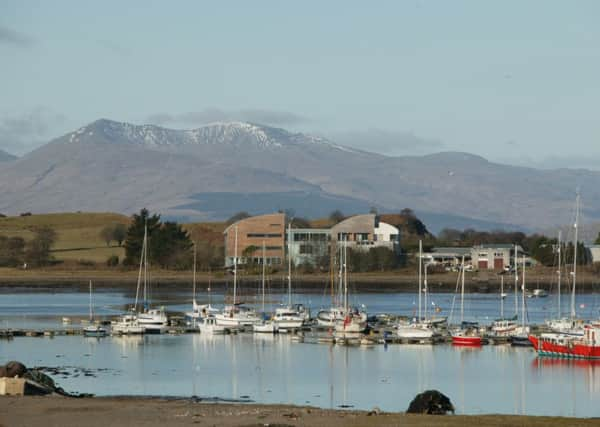Scot scientists to explore ‘Hades’ ocean depths


Researchers at the Scottish Association for Marine Science (Sams) will use specially designed deep-sea robots to study organisms living nearly 11 kilometres beneath the surface in the most inhospitable environment on the planet.
Hadal zones, named after the mythological underworld realm of Hades, are areas of the sea floor where tectonic plates of the earth’s geological crust have collided and overlapped to form deep trenches.
Advertisement
Hide AdAdvertisement
Hide AdPlunging deeper than 6,000 metres, these extreme regions are the least explored on the planet.
The new £2.3 million Hades Project, led by Professor Ronnie N Glud of Oban-based Sams and the University of Southern Denmark, will for the first time allow scientists to analyse live creatures in their natural environment.
Three robots are being custom-built to withstand the extreme pressure involved in diving to the very bottom of the sea.
They will be used to investigate how life is sustained at such depths and how its activity affects the functioning of the oceans and the earth.
The unique devices will allow experts to study a wider range of organisms than ever before. Previous analysis has been limited to specimens that could be retrieved without being damaged by the reduction in pressure on the long trip to the surface.
Prof Glud has been involved in other expeditions to probe the world’s furthest reaches, most notably the 2013 investigation of the Mariana Trench - the deepest spot on the planet.
Prof Glud said: “It is extremely difficult to investigate what actually happens in the extreme deep. Organisms that are removed from their natural extreme environment and studied in a laboratory will inevitably be affected – and potentially killed – by the large pressure difference during sample recovery.
“In onboard laboratories researchers generally only study organisms that can withstand the recovery ‐ and they are not necessarily the ones that are most important in the deep.
Advertisement
Hide AdAdvertisement
Hide Ad“It is therefore important to examine the organisms and their metabolic activity in that environment.”
The three trenches to be explored are in the Pacific Ocean: the Atacama Trench, off Chile; the Japan Trench, south and east of Japan; and the Kermadec Trench, north of New Zealand.
Investigating more of the unexplored trenches and their specialised microbial communities will help uncover how organisms function at extreme pressures and what role they play in the global carbon cycle, according to the team.
The three trenches, which have different depths, have been selected as they are expected to harbour varying amounts of organic matter because of local nutrient conditions in overlying surface waters and different physical conditions.
Dr Robert Turnewitsch, principal investigator in marine geochemistry at Sams and a co-investigator on the Mariana Trench study, is also part of Hades.
He is hoping the “exciting” new project will yield unexpected results.
“This will be a very interesting challenge for all of us,” he said. “Taking such comprehensive readings in situ has not been done before at these depths.
“The hadal zone is an extreme environment that hardly anyone has looked at, so there are many unknowns.
Advertisement
Hide AdAdvertisement
Hide Ad“The opportunity to work on a project like this is very exciting.
“I want to be surprised; I want to find something that challenges our views and perceptions of the deep sea and we now have a great opportunity to do that.”